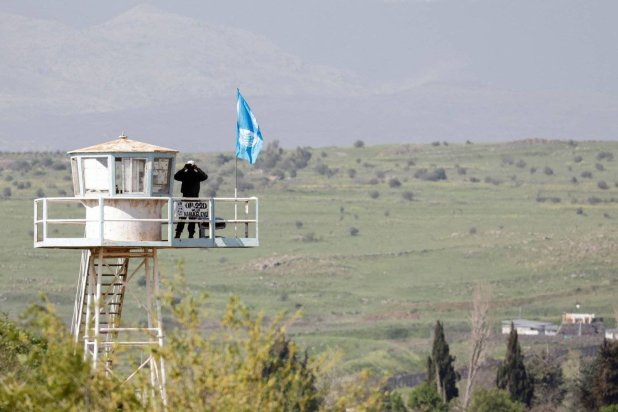
Syria has avoided getting embroiled in the Gaza war, experts said, despite a strike on Iran’s Damascus consulate, blamed on Israel, that threatened to ignite a regional conflagration.
The government of Syrian President Bashar Assad is seeking to strike a delicate balancing act between Russia and Iran, which have propped up it up during 13 years of civil war and helped it reclaim lost territory.
Syria is part of the so-called Axis of Resistance — an alliance of Iran-backed groups that has launched attacks on Israel or its alleged assets since October.
But its other main ally Russia maintains diplomatic ties with Israel and has pushed for stability in the region.
“The Israelis clearly warned Assad that if Syria was used against them they would destroy his regime,” a Western diplomat who requested anonymity because he is not allowed to speak to the media, told Agence France Presse.
Andrew Tabler of the Washington Institute said that “Russia and a Gulf state have urged (Assad) to stay away from the conflict” between Israel and Hamas.
Recent months have seen a series of strikes on Iranian targets in Syria, culminating in an April 1 raid that levelled Tehran’s consulate in Damascus and killed seven Iranian Revolutionary Guards, two of them generals.
That strike prompted Iran to launch a first-ever direct missile and drone attack against Israel on April 13-14 that sent regional tensions spiraling.
The escalation of strikes and the war in Gaza have raised fears of an attack on Israel from the Syrian front, which had witnessed decades of “relative calm.”
And while Iran’s allies in Lebanon, Iraq, and Yemen have opened fronts against Israel in support of Hamas, the Golan Heights has remained relatively calm since the start of the war in Gaza.
Tabler said that since October 7, Assad has largely sat out the Gaza conflict, with only between 20 and 30 missile or rocket attacks from Syria on Israeli-controlled territory. He said nearly all of these have reportedly “landed in open areas” and led to no Israeli casualties.
The Syrian Observatory for Human Rights war monitor says that since the start of the Gaza war only 26 rocket attacks from Syria have targeted the Golan, which Israel captured from Syria in 1967 and annexed in 1981.
Most have landed in open areas, “which is read in Washington and elsewhere as a sort of code that Syrian President Bashar Assad wants to stay out of the Gaza conflict,” Tabler said.
In addition, the attacks have also pushed Iran to reduce its military footprint throughout southern Syria, especially in areas bordering the Golan, a source close to Hezbollah and a war monitor told AFP.
Earlier this month, Russia’s defense ministry said it had established an additional position in the Syrian part of the Golan, to “monitor the ceasefire and promote de-escalation.”
In November, Hezbollah Secretary General Hassan Nasrallah said that “despite its difficult circumstances, Syria is hosting the resistance movements and bearing the consequences.”
“No one is asking for more than this from Syria,” he added.
Tabler said, “Assad hopes the Arabs and the West will compensate him for his restraint, and the Russians are pushing him towards this path.”
Last year, Syria returned to the Arab fold, seeking better ties with Gulf states, in hopes they can help fund reconstruction.
And while massive demonstrations in solidarity with Palestinians in Gaza took place in several Arab capitals, Damascus only saw a handful of small pro-Palestine rallies, witnesses said.
Syria has had a difficult relationship with Palestinian militant group Hamas.
Hamas and Assad reconciled in 2022, a decade after the militants, long allied with Damascus, broke ties over its suppression of largely Sunni protests that triggered Syria’s civil war.
“The regime hates Hamas and has no desire to support the Muslim Brotherhood, whose victory could only strengthen their friends in Syria,” the Western diplomat said.
Hamas announced last year the opening of a new page with the Syrian government, but Assad felt that it was still “too early” to talk about a return to normality.

